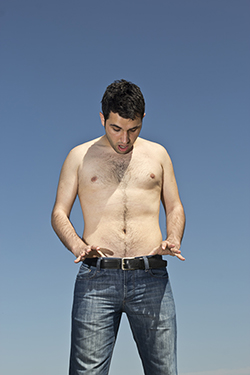Vasectomy and Prostate Cancer
Prostate cancer is the most common cancer found in men, with over 230,000 men diagnosed in the United States every year. Although it is common, it is still one of the least well-known cancers and there are several myths circulating about symptoms and potential risk factors.

As with any disease, it is important to research, note which risks are significant, and do everything possible to help reduce your risk. Age, race and family history are all significant factors for developing prostate cancer. 1 in 7 men will be diagnosed in their lifetime, and if you have a family history, that chance increases to 1 in 3.
Previous studies have suggested that having a vasectomy is linked to developing prostate cancer later in life. In an article published in 2014, researchers claimed that undergoing a vasectomy amplified the risk for a prostate cancer diagnosis.
In 2016, a study was published in The Journal of Clinical Oncology and found that there is no connection between having a vasectomy and later developing prostate cancer, aggressive or otherwise. The researchers determined that there is no difference in rates of prostate cancer or morality between men who had vasectomies and those who had not. The study analyzed data from 360,000 men, which included 42,000 who had undergone a vasectomy.
Additionally, researchers at the Mayo Clinic conducted a study of over 15 million men who had a vasectomy and were followed for 24 years. The researchers used 3 decades of research and found no clear proof of a link between vasectomy and prostate cancer. This is not only the most recent, but largest study to date on a potential link between vasectomy and prostate cancer.
When men think about undergoing a vasectomy, they might have a few concerns: pain, anxiety about the procedure, and the possible effect on sex life. Fear of developing cancer as a result of this procedure is unnecessary, as studies have shown this is not a factor.
Steps that men can take to reduce their risk of prostate cancer include maintaining proper nutrition, visiting your doctor regularly, getting regular exercise, and if you are a smoker, quitting.
If you would like to learn more about prostate cancer prevention or prostate cancer treatment, contact Freedman Urology at 702-732-0282.
As a Urologist, who has been performing the no scalpel/no needle vasectomy technique for over 30 years, I have noticed that most men are highly concerned about the post operative pain that is associated with the procedure. As more and more men rely on the Internet to do their vasectomy research, they come to my office full of questions regarding the horror stories that have surfaced. I understand that the scrotum is an extremely sensitive area on a man's body and there is quite a bit of anxiety that is associated with the procedure. Hopefully this blog can put some of your concerns to rest.

A Vasectomy procedure is a method of elective sterilization for men who do not wish to have any more children. The procedure is simple and is performed in-office most of the time.
The procedure itself takes about 20 minutes. You are numbed with local using the Madajet injector prior to making the puncture site. This should be the only uncomfortable part of the procedure. You may feel tugging, pressure and pulling, but nothing sharp. My staff and I do our best to try and keep your mind off of the procedure that is taking place, and will talk to you about many different topics. You are also able to bring music to calm your nerves as well. Before you know it, the vasectomy will be complete and you will be on your way home.
Most men find that the post operative pain following the no scalpel vasectomy is not as bad as the internet portrays. Most men are able to resume normal activities after a couple of days. Patients find that although the swelling following vasectomy is uncomfortable, it can be reduced by applying an ice pack and taking it easy for a day or two. You will be given a prescription for pain medication, but most men do not even fill it, as they state their pain is not that bad.
It is important to note if you have chronic scrotal pain to begin with, the pain will not go away or be eliminated after the vasectomy procedure and it may be best to schedule surgery under anesthesia.
All in all, yes you will have post operative pain after a vasectomy, but stop reading about patient horror stories on the Internet. It is my goal to make this permanent form of sterilization as comfortable as possible.
